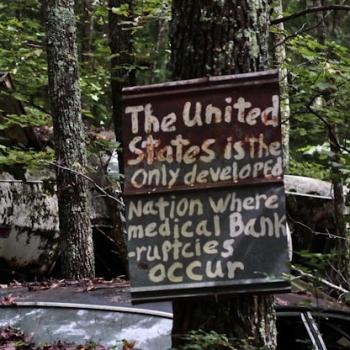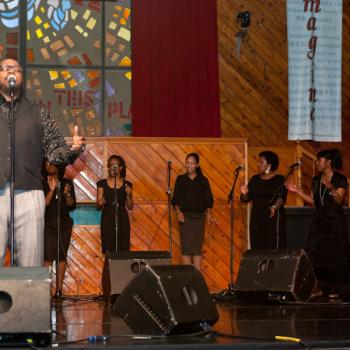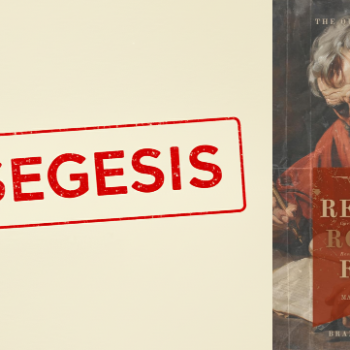For much of my life, including my years attending a Christian seminary, the resurrection was an abstraction to me. I tended to think more about daffodils, eggs, and springtime around Easter time than I did about a dead man in a tomb rolling back the stone and walking out.
All of that changed the year I interned at a small storefront church in Roxbury, Massachusetts. The church, housed in the Marcus Garvey Community Center, was a lively gathering for the homeless, jobless, those struggling with addiction (the Boston Detox brought a bus each week), and people with AIDS. Most of the men and many of the women had spent time in jail. During the year I was there, over a dozen young men who were affiliated with the congregation were shot, many of them killed.
Though the church was quite multicultural, the senior minister preached the kind of Black Liberation theology that Rev. Jeremiah Wright was so ridiculed for during the 2008 Presidential campaign. For me, as a white middle class girl, it was challenging to be so completely out of my element. Many of the cultural references were lost on me. Not only did I not share a culture or class with most of the people there, it was above all the Christianity that bewildered me. It resembled nothing I had experienced or learned about in my seminary classes.
One day I remember walking home, kicking rocks, grumbling to myself, "The seminary should have called it white New Testament class! This is a whole different religion than I ever learned about!" The weekly interpretation of scripture left me stunned, excited, and often bewildered that the stories I had heard for so long could be explained in such different ways.
But here is the truth—the religious story I was part of in Roxbury was far more compelling and interesting than the one I had learned about in a white, middle class seminary. And it made a lot more sense. I began to see why Christianity had never really worked for me as a religion; it was meant to be a survival code for the poor and the marginalized, not a cloak of entitlement and sanctity for the privileged.
In Roxbury, we took communion every week. And every week the people led this central part of the service by saying, "On the night Jesus was betrayed, he offered bread to his beloved people, and said, take this and eat in remembrance of me. Now we remember all of those who are betrayed, who are hurt and killed as they stand for justice and stand with the poor and the marginalized. We eat this bread in honor of them all." And then people would call out the names of people, either people that they knew or Oscar Romero, Mahatma Gandhi, Malcolm X, Martin Luther King—all of those who had been martyred in their work for justice.
This sense of God as the unkillable spirit, despite all abuse and oppression and suffering, provided meaning and continuity in a community that could count on little of it. Easter, then, became the annual marking of the triumph of the oppressed, no matter how it might appear on the outside. No matter how mighty the powers against him, Jesus could not be killed. That fact—and it was a fact—held together the lives of people who struggled every day to roll boulders off of their own life force: boulders of racism, poverty, violence, addiction.
Ultimately, it was not in church or reading scripture that I witnessed and came to understand the resurrection. It was in the lives of the gathered people. These people, who had every reason to give up and live hopeless, bitter lives, instead tapped into the vein of life that has made 'a way out of no way' for oppressed people throughout the ages. The resurrection made itself visible to me in the lives of imperfect people struggling against all odds to live generous, meaningful lives, creating together a community of love and care and spiritual strength.
Until that time, it was as if Jesus was an uncle away in the army. I had never met him, but his picture was on the mantelpiece and people talked about him fondly. In Roxbury, I came to know the living Jesus. That lived experience has given me strength and comfort ever since, and makes the grandest field of daffodils seem tiny and dull in comparison.
4/17/2011 4:00:00 AM




